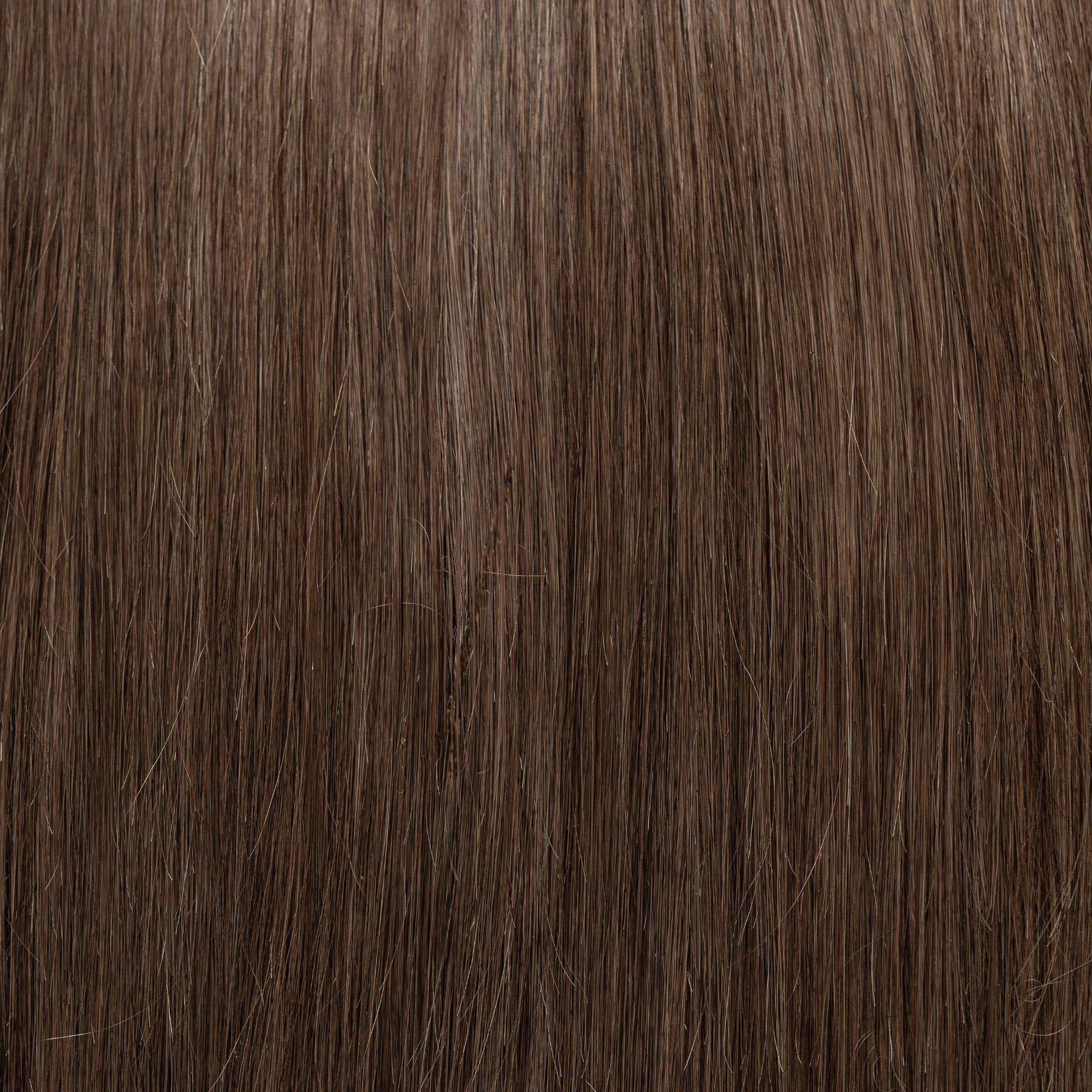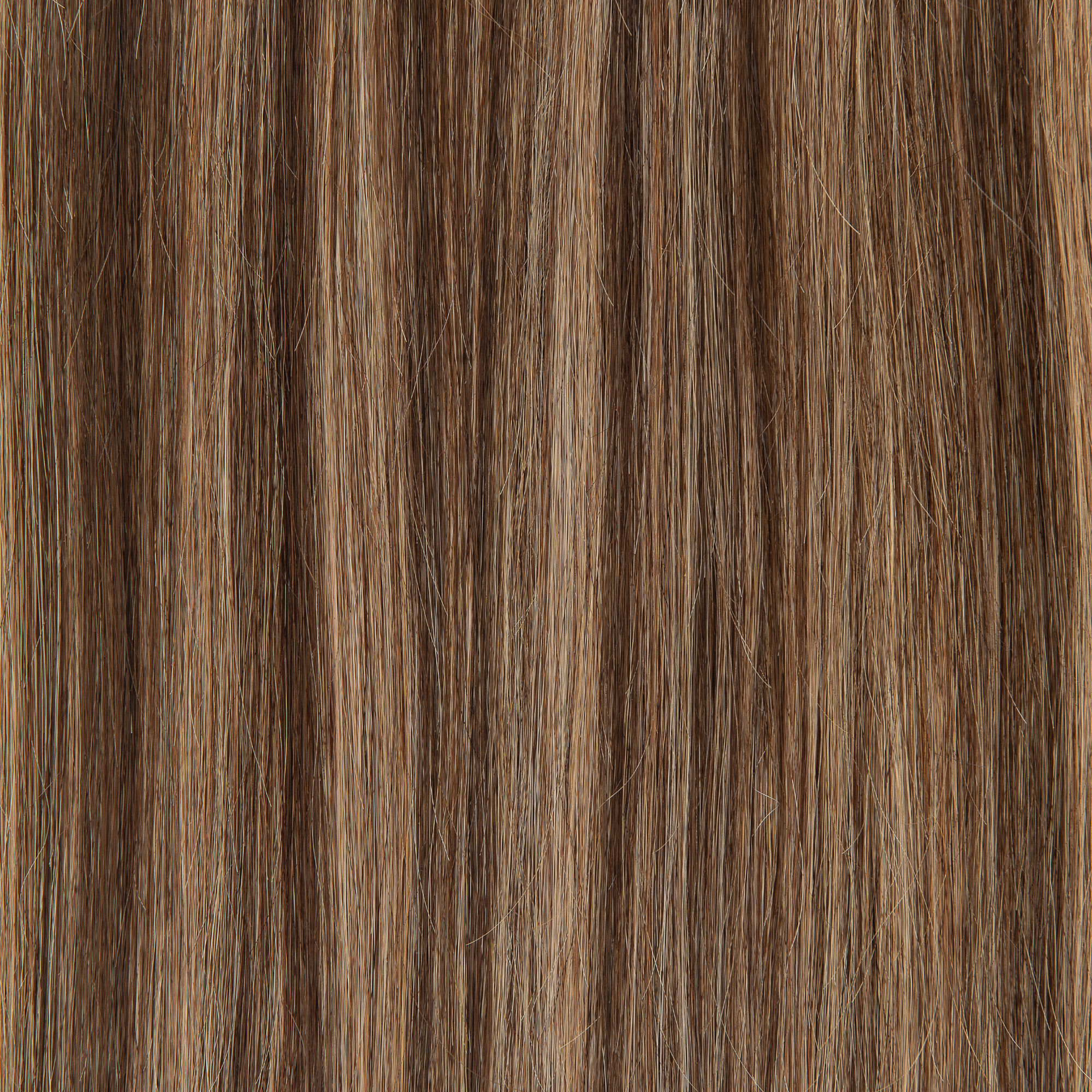
Ethical Considerations in the Hair Extension Industry
- Irene GilmanIn the fast-paced world of beauty and personal care, ethical concerns are increasingly in the spotlight. Recently, well-known brands like Shein, Fenty, and even the likes of Apple have faced criticism for their product quality and alleged mistreatment of workers. These controversies highlight a broader issue in industries like hair extensions, where decisions about sourcing and labor practices can have far-reaching impacts. Choosing ethical hair extensions isn't just about style—it's about supporting fairness, sustainability, and transparency. In this article, we explore what makes hair extensions ethical, why it matters, and how consumers can make informed choices to shape a better industry.
The Ethics Behind Hair Extensions
Ethically sourced human hair extensions uphold principles of fairness, transparency, and sustainability throughout their production process. This means sourcing hair at fair rates, respecting the consent of individuals who sell their hair—often to improve their lives and support their families—and ensuring proper working conditions for those involved in the manufacturing process. These conditions include adequate ventilation, regular breaks, and overall workplace safety measures. Ethical human hair extensions can be made from responsibly sourced human hair or sustainable synthetic materials, aiming to minimize environmental impact while upholding ethical standards.

Why Ethical Practices Are Crucial in Hair Extensions
Hair Ethics play a crucial role in the extension industry, influencing various aspects from production to consumer choices. Here’s why ethical considerations are more important than ever:
-
Impact on Consumers: Ethical extensions provide consumers with peace of mind, knowing where and how the hair was responsibly sourced. By choosing ethically sourced products, consumers support fair labor practices and contribute positively to communities.
-
Community and Environmental Impact: Unethical practices in sourcing and manufacturing can have detrimental effects on local communities and ecosystems. Ethical hair extensions aim to minimize these impacts through responsible sourcing and sustainable production methods.
- Long-Term Benefits: Investing in ethically sourced hair extensions promotes long-term benefits for both consumers and the industry. It encourages transparency, fosters trust between brands and consumers, and drives positive changes in global supply chains.
Sourcing of Hair (Ethical Challenges)

The sourcing of hair presents significant ethical distinctions between ethical and unethical practices. Ethical sourcing of human hair involves paying fair rates to individuals who willingly sell their hair, often to improve their quality of life and support their families. It prioritizes consent, ensuring that donors understand and agree to the process. In contrast, unethical practices may involve exploitative conditions where donors receive minimal compensation or are coerced into selling their hair. Transparency is also key in ethically sourced hair, with brands disclosing origins and collection methods. Synthetic hair, while avoiding ethical concerns related to human hair extensions, raises environmental issues due to its synthetic nature and lack of biodegradability. These distinctions underscore the importance of informed consumer choices and industry-wide transparency to support ethical practices in the extension market.
Labor Practices and Fair Wages
Labor practices in the hair extension industry vary widely. Ethical standards ensure that workers in hair collection have safe, hygienic conditions with proper ventilation and breaks to protect their well-being. On the other hand, unethical practices often prioritize productivity and cost-cutting over worker welfare, exposing workers to harsh conditions without adequate safeguards. Ethical sourcing also means fair compensation for those selling their hair, reflecting its true value and the effort involved. In contrast, unethical practices exploit donors with minimal pay that doesn't fairly compensate them. Upholding fair labor practices not only supports ethical standards but also contributes to sustainable livelihoods and community welfare.
Environmental Impact of Hair Extensions

The environmental impact of hair extensions is a crucial consideration in today's beauty industry, influencing product sustainability and consumer choices. Ethical practices in hair extensions prioritize sustainable materials, including responsibly sourced human hair and synthetic options designed to minimize environmental harm. However, traditional practices using synthetic materials like Kanekalon can pose environmental and health concerns due to their non-biodegradable nature and potential for releasing harmful chemicals during production, use and disposal. Ethical brands strive to reduce waste throughout the lifecycle of extensions, implementing recycling initiatives and sustainable packaging solutions. Despite these efforts, industry-wide challenges in waste management underscore the ongoing need for innovation and heightened consumer awareness about the ecological footprint of their beauty choices.
Consumer Awareness
Consumer awareness is crucial in shaping ethical practices within the hair extension industry, emphasizing transparency and education regarding the origin and processing of extensions. Ethical brands prioritize transparency by providing clear information about the origins of their hair extensions, how they are sourced, and the conditions under which they are collected. It's essential for consumers to research the companies they buy from, asking questions about sourcing practices and ensuring alignment with their ethical values. Many reputable brands disclose this information on their websites, but if not readily available, reaching out directly can provide clarity. Educating consumers about these ethical considerations empowers them to make informed choices that support fair labor practices and environmentally responsible production. Certifications and clear labeling further aid consumers in identifying trustworthy products, promoting transparency and accountability across the industry.
How to Choose Ethically Sourced Hair Extensions
Choosing ethically sourced hair extensions involves several key considerations to ensure your purchase aligns with ethical standards and personal values. Here are practical tips to guide your decision:
-
Research the Company: Before purchasing, research the brand's commitment to ethical sourcing. Look for information on their website about where and how their hair extensions are sourced. Reputable brands often provide detailed transparency regarding their supply chain practices.
-
Ask Questions: Don't hesitate to ask questions directly to the company if information is not readily available. Inquire about the conditions under which the hair is collected, the compensation provided to donors, and any certifications or labels that validate their ethical practices.
-
Look for Certifications: Seek out brands that carry certifications or labels indicating adherence to ethical standards. Certifications from recognized organizations can verify that the hair extensions meet specific criteria for fair labor practices and sustainability.
-
Consider Sustainable Materials: Opt for extensions made from sustainable materials, such as responsibly sourced human hair or synthetic options with minimal environmental impact. Sustainable choices help reduce the overall ecological footprint of your beauty routine.
- Support Transparent Brands: Choose brands that prioritize transparency in their operations and are committed to educating consumers about ethical issues in the industry. Transparent brands openly communicate their sourcing practices and welcome inquiries from customers.
By following these guidelines, you can make informed choices that support ethical practices in the hair extension industry, contributing to a more sustainable and socially responsible marketplace.
Final Thoughts
Ethical considerations in the extension industry are increasingly important as consumers and brands alike prioritize sustainability and social responsibility. At Atelier Extensions, we pride ourselves on ethically sourcing all our hair from Brazil and manufacturing our hair extensions in-house at our NYC showroom, specializing in hyper-realistic human hair wigs. Our extensions are certified kosher, distinguishing us as pioneers in the market and ensuring that our products are free from hair that may have been unethically sourced from temples. Transparency about our sourcing practices and commitment to ethical standards are core values that guide our operations.
By understanding the ethical challenges in sourcing, labor practices, and environmental impact, consumers can make informed choices that support fair treatment of workers and minimize ecological harm. As awareness grows, so does the demand for certifications and labeling that verify ethical standards, driving positive change across the industry.
In conclusion, choosing ethically sourced hair extensions involves research, questioning, and supporting brands committed to transparency and sustainability. If you'd like more information about our products and practices, please connect with us! Together, we can contribute to a more ethical and conscientious beauty industry, one purchase at a time.
F.A.Q's
Ethical hair extensions are products made with a focus on fair trade, sustainable practices, and transparency in sourcing. These extensions prioritize the welfare of donors and workers, ensuring they receive fair compensation and work under safe conditions. They matter because unethical practices in the industry, such as exploitation and environmental harm, can negatively impact individuals and communities.
Look for brands that provide detailed information about their supply chains. Companies offering ethically sourced hair extensions typically disclose their sourcing methods, certifications, and donor practices. Certifications like Fair Trade or partnerships with verified suppliers are good indicators of ethical sourcing.
Ethical hair refers to products that are responsibly sourced and produced without harming people or the environment. This encompasses everything from ensuring fair wages for hair donors to using eco-friendly packaging and production methods. Ethical hair also involves transparency from brands, so customers can make informed choices.
Ethical human hair extensions can be sustainable when brands prioritize environmentally friendly practices, such as reducing waste, using recycled materials, and sourcing hair from voluntary donations. By supporting these practices, consumers can minimize the industry's ecological footprint.
Ethically sourced human hair ensures that donors are treated with dignity and compensated fairly. This is essential for promoting fair trade principles and preventing exploitation. When purchasing such products, you're supporting a system that respects human rights and prioritizes ethical labor practices.









